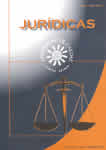Authors
Abstract
Since Lady Chatterely’s Lover to the problems of social election, discussion generated in Amartya Sen’s article of 1970, joined in one line the ethical, political and Liberalism discussion, connecting these elements with the history of the social election. Independently of the social and economic system, living in a society implies that there should be rules that act upon the behavior of individuals when they act in a lone manner and when they choose, but also when they interact in a social manner, trying to obtain the social well-being of all individuals.
References
ARROW, Kenneth. (1951). Social Choice and Individual Values. New York: Jhon WiLey.
__________. (1978). El equilibrio económico general: propósito, técnicas analíticas, elección colectiva. En: Los premios Nóbel de Economía 1969-1977. México: Fondo de Cultura Económica.
__________. (1987). Arrow’s Theorem. En: The New Palgrave A Dictionary Of Economics. London: Macmillan.
__________. (1994). Elección social y valores individuales. Barcelona: Planeta-Agostini.
BUCHANAN, James & TULLOCK, Gordon. (1962). The Calculus for Consent. Michigan: Ann Arbor University Press.
ELSTER, Jon. (1982). Foundations of social choice theory. London: Cambridge University.
GIBBARD, Allan. (1969). Intransitive Social Indifference and the Arrow Dilemma. Sin publicar.
__________. (1973). Manipulation of voting schemes: A general result. En: Econometrica No. 41. Ohio: Blackwell Publishing.
GONZÁLES, Jorge Iván. (1999). Sen y la Elección Colectiva. En: Cuadernos de economía No. 29. Bogota: Universidad Nacional.
Hurwicz, Leonid. (1972). Decision and Organization. Amsterdam: McGuire & Radner Editors.
MONSALVE, Sergio. (1998). Implementación, Elección Social y Teoría de Juegos. Valencia: Mimeo.
MULLER, David. (1979). Public Choice. London: Cambridge University Press.
SALCEDO, David. (1994). Elección social y desigualdad económica. Madrid: Anthropos.
SATTERTHWAITE, Mark. (1975). Strategy-proofness and Arrow’s Conditions: Existence and Correspondence Theorems for Voting Procedures and Social Welfare Functions. En: Journal of Economic Theory, 10 (April), 187-217.
__________. (1989). Strategy-Proof Allocation Mechanisms. En: Game Theory. The New Palgrave A Dictionary of Economics. London: Macmillan Publishers Limited.
SEN, Amartya. (1970). Collective Choice and Social Welfare. New York: John WilLey.
__________. (1976). Elección Colectiva y Bienestar Social. Barcelona: Alianza Editorial.
__________. (1979). Sobre la desigualdad económica. Barcelona: Editorial Crítica.
__________. (1987a). On Ethics and Economics. En: The New Palgrave A Dictionary of Economics. London: Macmillan.
__________. (1987b). Social Choice. En: The New Palgrave A Dictionary of Economics. London: Macmillan.
__________. (1995). Rationality and Social Choice. AER. Vol. 85, No. 1.
SERRANO, Edgard. (1999). El Teorema de la imposibilidad de Arrow. Una Mirada desde el Diseño de Mecanismos. En: Ensayos de Economía. Vol. 9, No. 15. Medellín: Universidad Nacional.
TAYLOR, Lance. (1982). La Teoría de la Elección Social y el Mundo en que Vivimos. En: Cuadernos de Economía. Bogota, Vol. XVII, No. 29.
VANHUYSSE, Pieter. (2000). On Sen’s Liberal Paradox and its reception within Political Theory and Welfare Economics. New York: Political Studies Association.

 PDF (Español)
PDF (Español)
 FLIP
FLIP





















